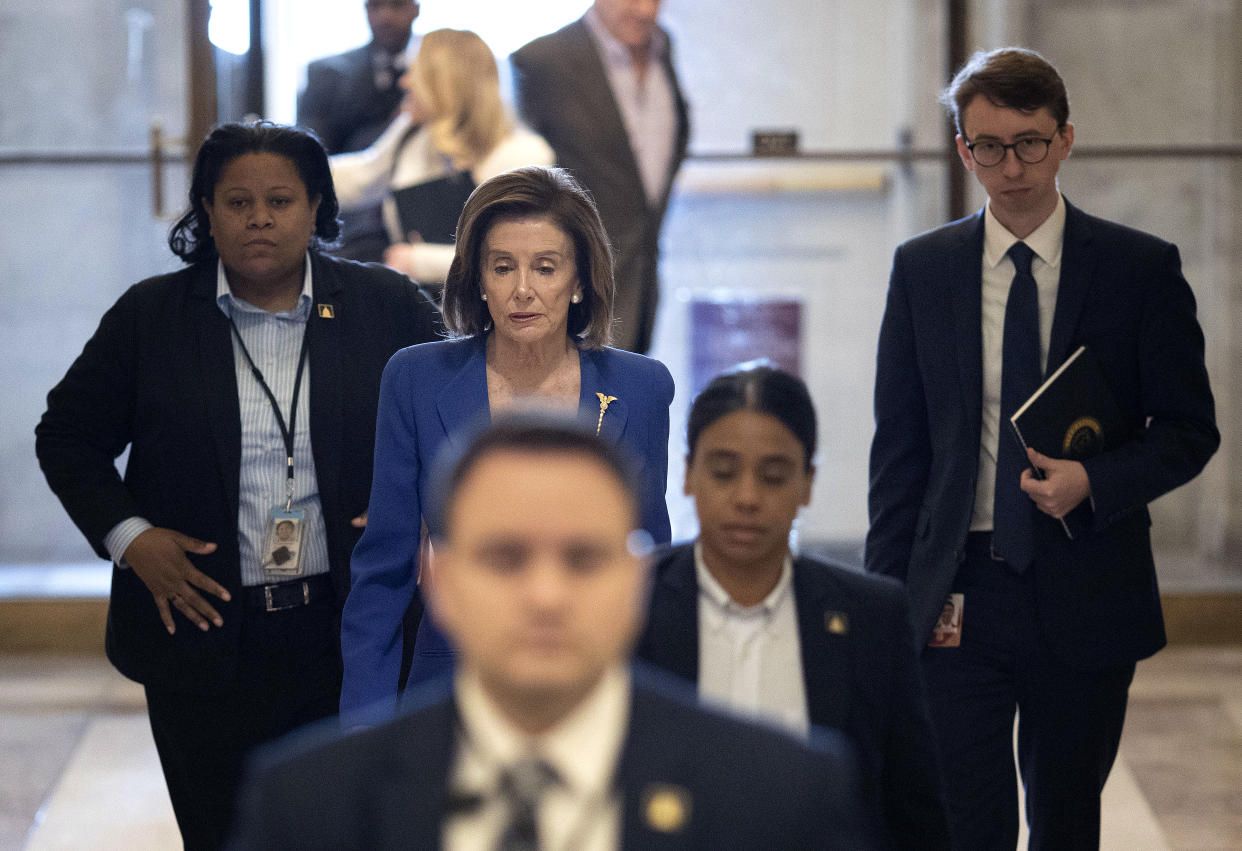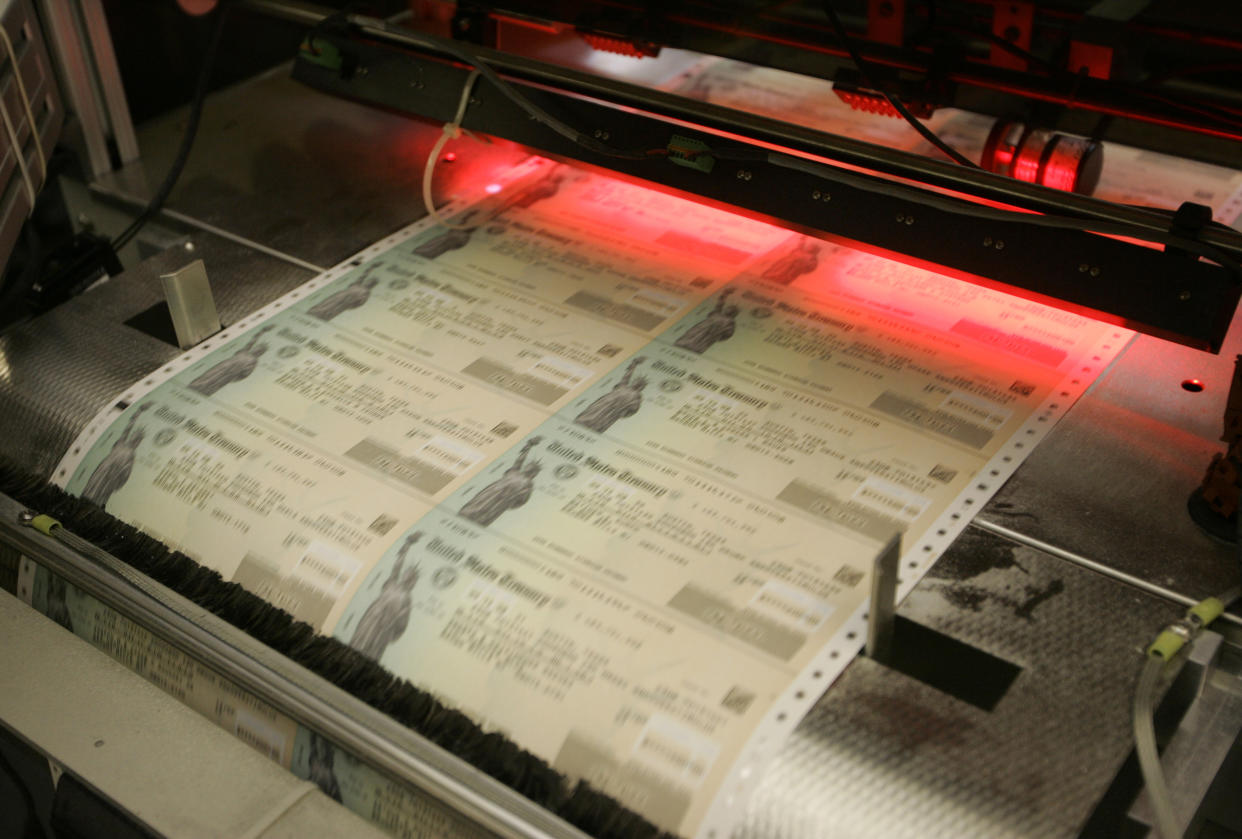Coronavirus aid checks: Who is eligible, when to expect it, and more
Many Americans will soon get government checks to help them financially weather job loss, reduced work hours, and other money challenges as the country tries to stem the spread of the coronavirus outbreak.
The $2 trillion stimulus package signed by President Donald Trump on Friday is the largest emergency aid package in U.S. history with $250 billion of it going directly to Americans’ wallets.
Here’s what you need to know.

Who gets a stimulus check?
“Our updated estimate is that 93.6 percent of [tax] filers will have a rebate,” said Garrett Watson, senior policy analyst at The Tax Foundation. “And this works out to approximately 140 million households.”
Your eligibility is based on your most recent tax return and your adjusted gross income. If you already filed your 2019 taxes ,your eligibility will be based on that. If not, the Internal Revenue Service will use your 2018 taxes to determine if you qualify.
The benefit is available not only to those who have filed taxes, but also to those who receive Social Security benefits as long as they’ve received their SSA-1099 form.
Read more: Tax deadline postponed: Why you should still file as soon as you can
Single adults with income up to $75,000 will get a $1,200 payment. Married couples with income up to $150,000 will get $2,400. Single parents who file as head of household with income up to $112,500 will get the full $1,200 check.
Additionally, Americans who qualify for the stimulus payment and have children will get an additional $500 per child under 17.
Reduced checks will be available for single adults who earn between $75,001 and $99,000 and married couples who earn between $150,001 and $198,000. The check will be reduced by $5 for every $100 over $75,000 for single adults and $150,000 for married couples.

Who doesn't get a check?
Single adults who make more the $99,000 and married couples who earn more than $198,000 won’t receive stimulus checks.
Those without a Social Security number and nonresident aliens — those who aren’t a U.S. citizen or U.S. national and don’t have a green card or have not passed the substantial presence test — aren’t eligible.
You’re also ineligible if your parents claim you as a dependent on their taxes.
When will the stimulus check arrive?
Treasury Secretary Steven Mnuchin said the White House wants the payments distributed by April 6.
“Our expectation is within three weeks we will have direct payments out where we have depository information,” Mnuchin said. “We’re looking to get a lot more information and we have procedures to do that.”

The checks will be directly deposited into your bank account if you received your last tax refund or expect to receive this year’s refund that way. If not, checks will be mailed, which could take longer to get to Americans. Reports suggested that mailed checks could take up to four months to get to recipients.
The last time the federal government sent checks to Americans was under President George W. Bush in 2008. While The Economic Stimulus Act was signed on February 13, 2008, the money wasn’t distributed until late April of that year.
How will the government send you the stimulus check?
The IRS will use the direct deposit information you provided from the taxes you’ve filed either for 2019 or for 2018.
If you have no direct deposit information on file or if the account provided is now closed, the IRS will mail you a check, instead.
Do you have to pay back the stimulus check?
No. The stimulus payment is actually a refundable credit against your 2020 tax liability, according to Kyle Pomerleau of the American Enterprise, and is paid out as an advanced refund. That means you don’t have to wait to file your 2020 taxes to get the money.
It also doesn’t reduce any refund you would otherwise receive, Watson said.
In fact, if you don’t qualify for the stimulus check now based on your 2018 or 2019 tax returns, you may be able to qualify to take the tax credit next year when you file your 2020 taxes if your income meets the thresholds.
Denitsa is a writer for Yahoo Finance and Cashay, a new personal finance website. Follow her on Twitter @denitsa_tsekova.
READ MORE:
'I may lose everything': Americans reel from job losses as coronavirus stalls economy
What to do if you lose your health insurance during the coronavirus outbreak
Read more personal finance information, news, and tips on Cashay
Follow Yahoo Finance on Twitter, Facebook, Instagram, Flipboard, SmartNews, LinkedIn, YouTube, and Reddit.
